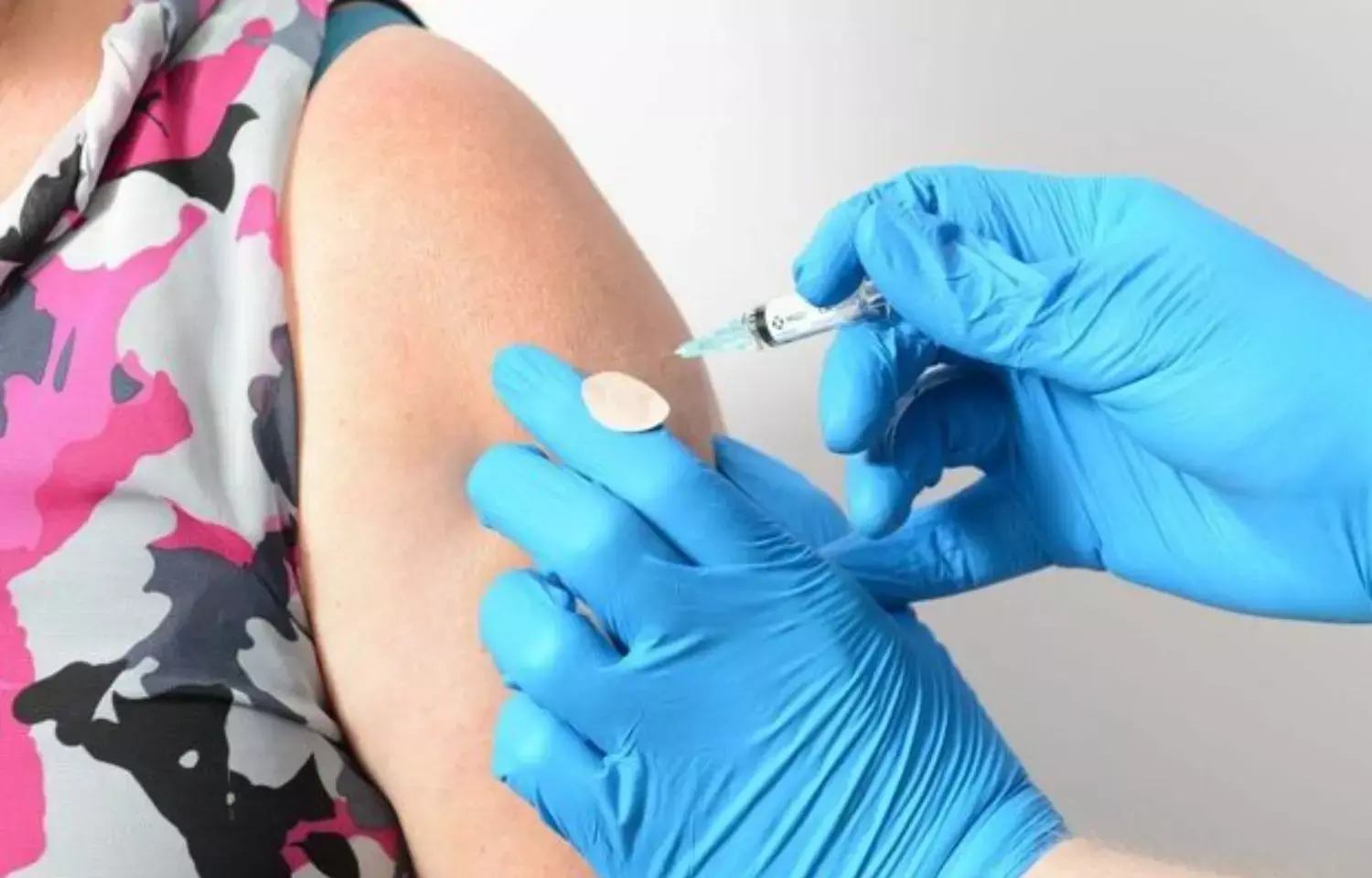- Home
- Medical news & Guidelines
- Anesthesiology
- Cardiology and CTVS
- Critical Care
- Dentistry
- Dermatology
- Diabetes and Endocrinology
- ENT
- Gastroenterology
- Medicine
- Nephrology
- Neurology
- Obstretics-Gynaecology
- Oncology
- Ophthalmology
- Orthopaedics
- Pediatrics-Neonatology
- Psychiatry
- Pulmonology
- Radiology
- Surgery
- Urology
- Laboratory Medicine
- Diet
- Nursing
- Paramedical
- Physiotherapy
- Health news
- Fact Check
- Bone Health Fact Check
- Brain Health Fact Check
- Cancer Related Fact Check
- Child Care Fact Check
- Dental and oral health fact check
- Diabetes and metabolic health fact check
- Diet and Nutrition Fact Check
- Eye and ENT Care Fact Check
- Fitness fact check
- Gut health fact check
- Heart health fact check
- Kidney health fact check
- Medical education fact check
- Men's health fact check
- Respiratory fact check
- Skin and hair care fact check
- Vaccine and Immunization fact check
- Women's health fact check
- AYUSH
- State News
- Andaman and Nicobar Islands
- Andhra Pradesh
- Arunachal Pradesh
- Assam
- Bihar
- Chandigarh
- Chattisgarh
- Dadra and Nagar Haveli
- Daman and Diu
- Delhi
- Goa
- Gujarat
- Haryana
- Himachal Pradesh
- Jammu & Kashmir
- Jharkhand
- Karnataka
- Kerala
- Ladakh
- Lakshadweep
- Madhya Pradesh
- Maharashtra
- Manipur
- Meghalaya
- Mizoram
- Nagaland
- Odisha
- Puducherry
- Punjab
- Rajasthan
- Sikkim
- Tamil Nadu
- Telangana
- Tripura
- Uttar Pradesh
- Uttrakhand
- West Bengal
- Medical Education
- Industry
New study updates evidence on risk of myocarditis and pericarditis after COVID vaccination

A study published by The BMJ today provides an up to date summary of evidence on the risk of myocarditis and pericarditis after mRNA vaccination against the covid-19 virus.
The review of more than 8,000 reported cases from 46 studies by researchers in Canada confirms previous reports that myocarditis is rare, but cases are highest among young males shortly after a second dose, and are probably higher after Moderna's mRNA vaccine than after Pfizer's vaccine.
It also shows that, while cases are predominantly mild, the risk of myocarditis or pericarditis might be lower when the second dose is given more than 30 days after the first dose.
However, the researchers warn that, in general, the evidence is of low certainty and say these findings must be considered alongside the overall benefits of vaccination.
Myocarditis (inflammation of the heart muscle) and pericarditis (inflammation of the fluid-filled sac surrounding the heart) are rare but serious conditions, usually triggered by a viral infection. Reports of these conditions after covid-19 mRNA vaccination have prompted ongoing surveillance and research.
The results show that rates of myocarditis after mRNA vaccines were highest in male adolescents and young male adults (50-139 cases per million in 12-17 year olds and 28-147 cases per million in 18-29 year olds).
For girls and boys aged 5-11 years and females aged 18-29 years, rates of myocarditis after vaccination with Pfizer might be fewer than 20 cases per million.
For individuals aged 18-29 years, myocarditis is probably higher after vaccination with Moderna than with Pfizer, and for 12-39 year olds, myocarditis or pericarditis might be lower when the second dose is given more than 30 days after the first dose.
Data specific to males aged 18-29 years indicates that the dosing interval might need to increase to more than 56 days to substantially drop rates of these conditions.
As such, the researchers say giving Pfizer over Moderna and extending dosing intervals might be beneficial for younger people.
But they point out that the clinical course of myocarditis in children 5-11 years, after a third dose, and for those with previous myocarditis after mRNA vaccination is largely unknown. And although the short term course has consistently shown to be quite mild and self-limiting, they say more data for longer term prognosis is needed.
They also acknowledge some limitations of their review, including the rapidly evolving covid-19 literature base and the potential for misdiagnosis. However, their comprehensive, peer reviewed search strategy and use of a range of information sources enabled them to capture the latest data.
As such they conclude: "As the covid-19 pandemic enters its third year, continued surveillance of myocarditis after mRNA vaccines, especially in younger ages, after dose three (and subsequent doses) and in previous cases is needed to support continued decision making for covid-19 boosters."
And they call for additional monitoring of people with relevant underlying conditions, long term follow-up of patients with myocarditis, and further studies to "enhance understanding of the mechanism or mechanisms of myocarditis and pericarditis after vaccination."
This large body of reviewed studies continues to suggest that mRNA covid-19 vaccines are associated with a rare but heightened risk of acute myocarditis and pericarditis, say US researchers in a linked editorial.
They point out that key uncertainties remain, including risks associated with boosters, risks associated with primary vaccination of young children, and the long term outcomes of those who experience myocarditis.
"But these uncertainties must be placed in the context of the substantial and widely accepted benefits of vaccination," they conclude.
Reference:
Incidence, risk factors, natural history, and hypothesised mechanisms of myocarditis and pericarditis following covid-19 vaccination: living evidence syntheses and review doi: 10.1136/bmj‑2021-069445
Dr Kamal Kant Kohli-MBBS, DTCD- a chest specialist with more than 30 years of practice and a flair for writing clinical articles, Dr Kamal Kant Kohli joined Medical Dialogues as a Chief Editor of Medical News. Besides writing articles, as an editor, he proofreads and verifies all the medical content published on Medical Dialogues including those coming from journals, studies,medical conferences,guidelines etc. Email: drkohli@medicaldialogues.in. Contact no. 011-43720751


